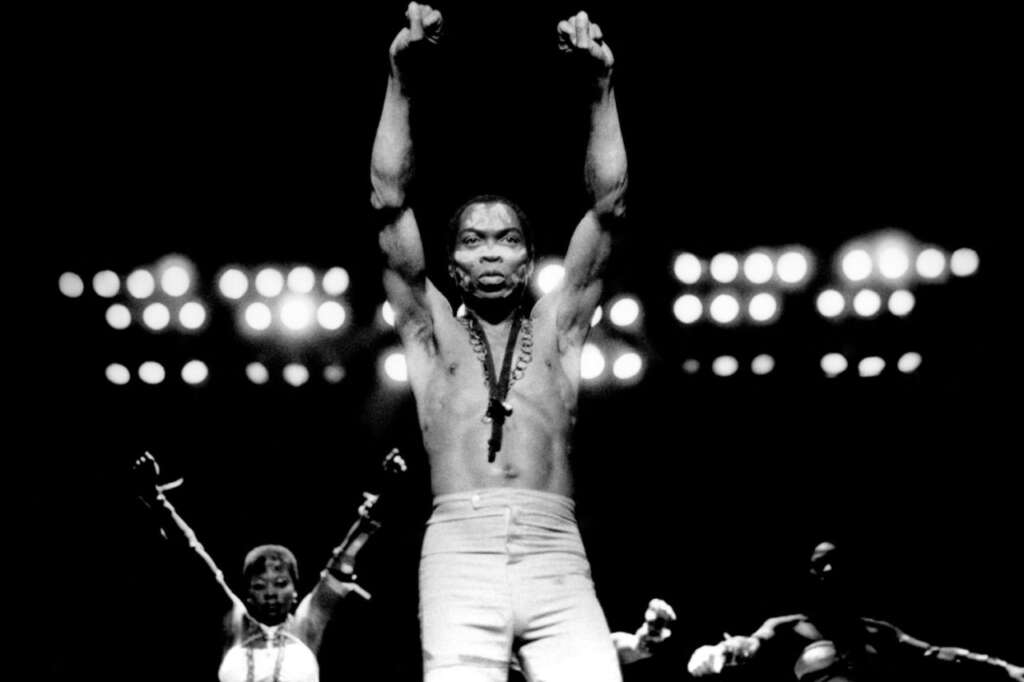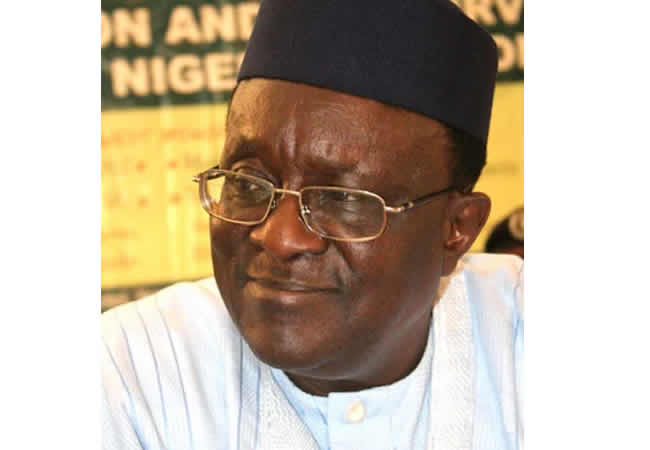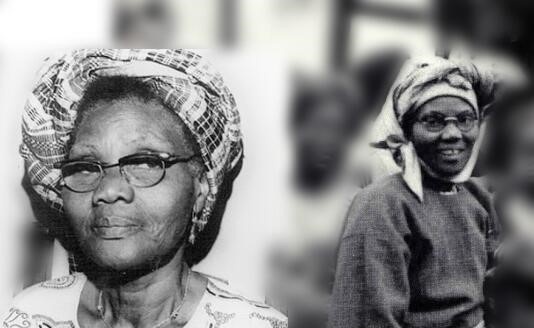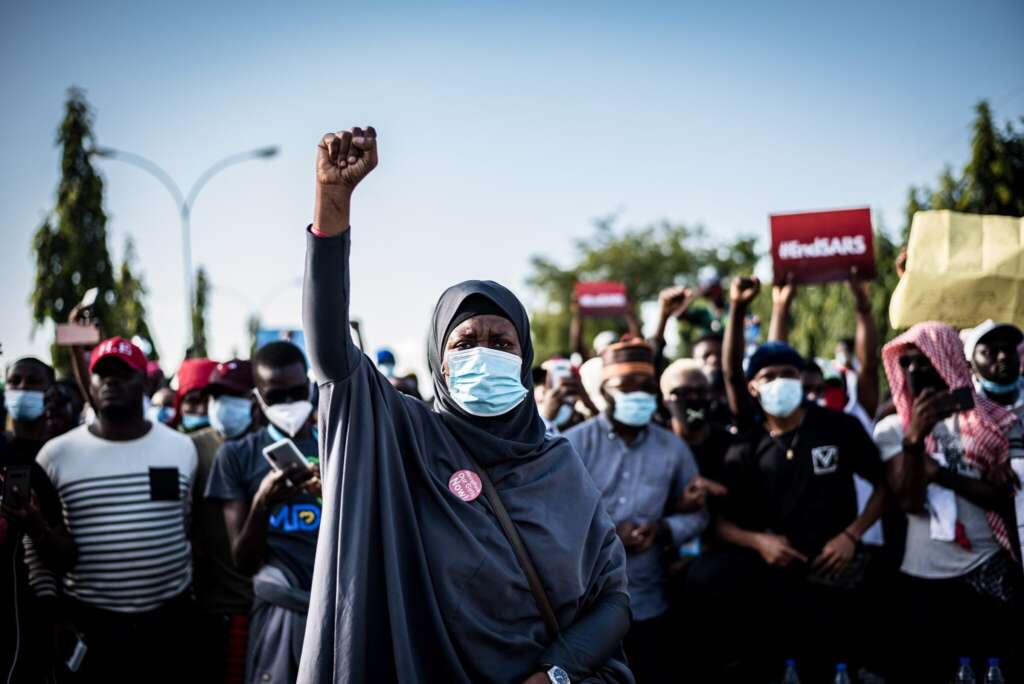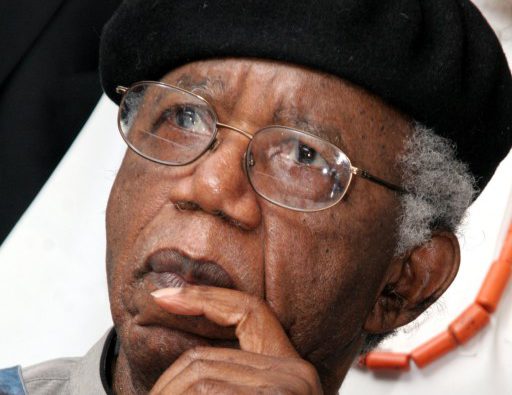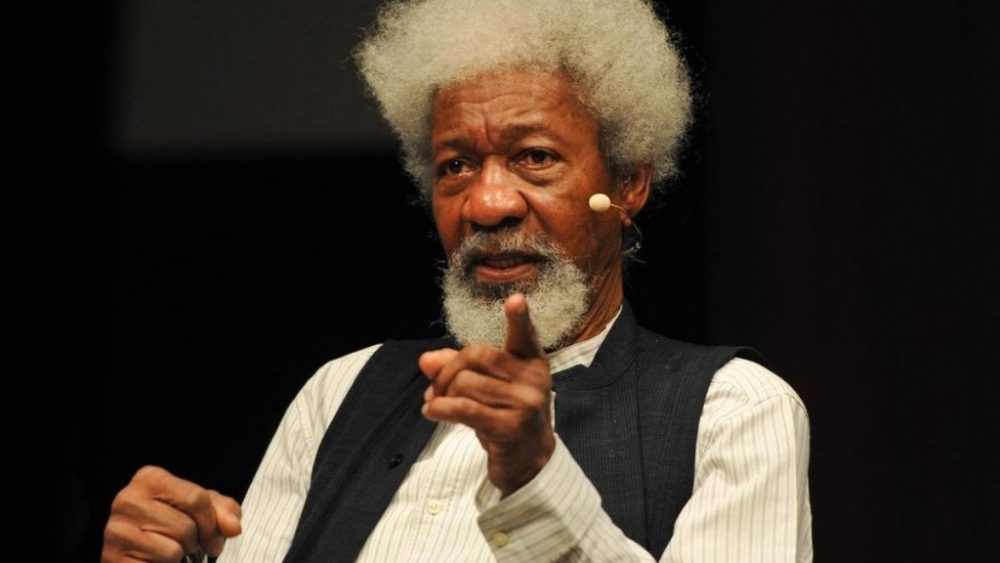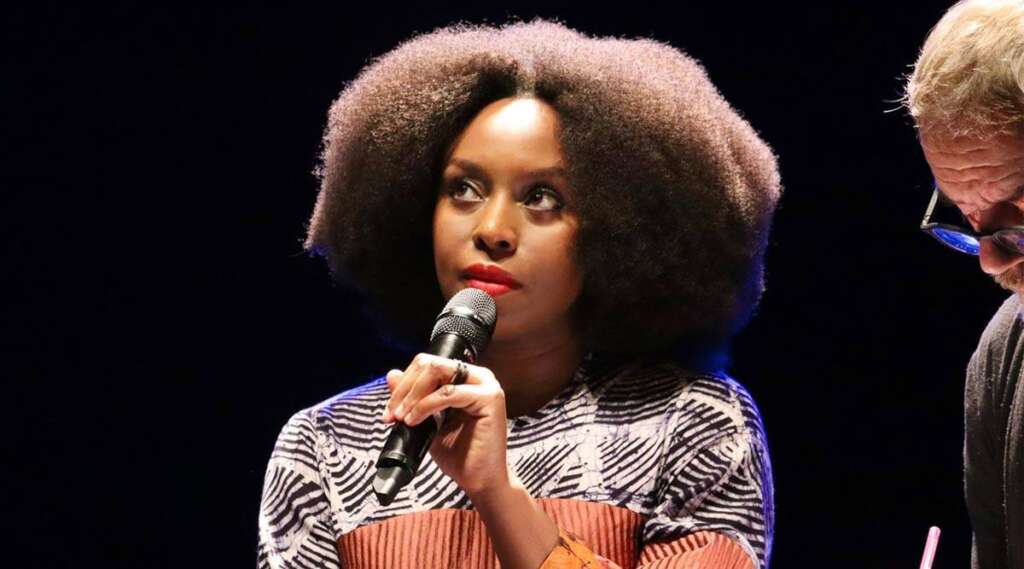Top Lists
8 Nigerian Activists Who Made large Impacts On The Nigerian Society
In honor of Nigeria’s 61st Independence anniversary, here are 7 activists in Nigerian history who made large impacts on Nigerian society.
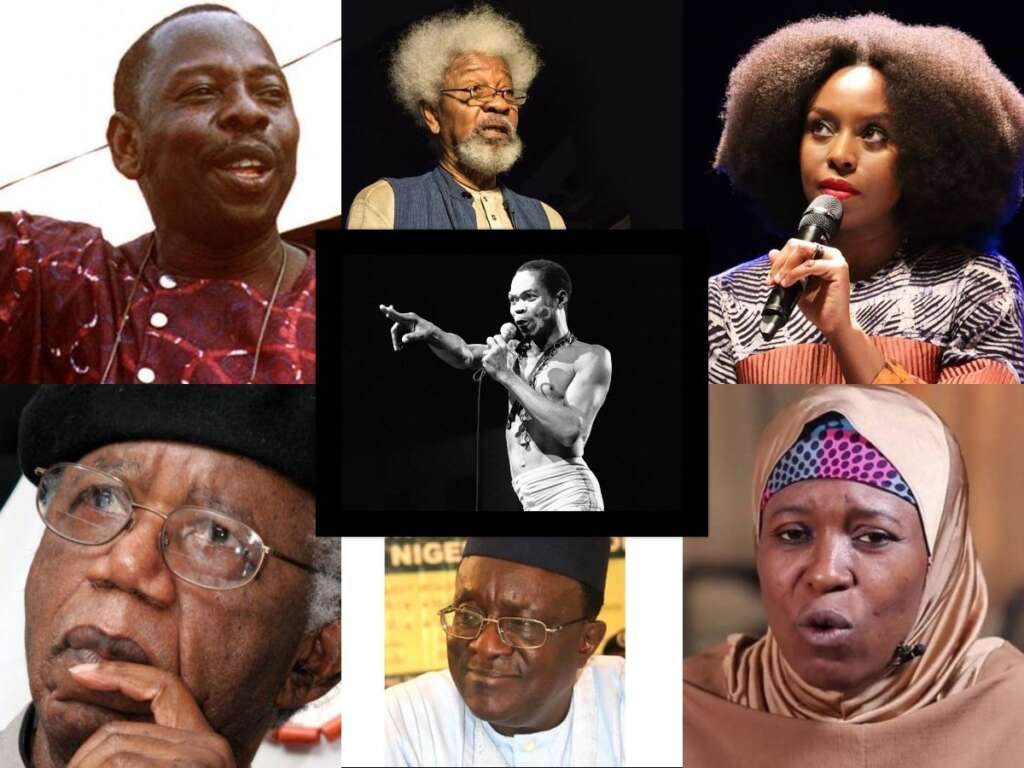
Since Nigeria was declared an independent state on the 1st of October 1960, the country has created a huge impact on the world and has grown to become Africa’s largest economy.
In honor of Nigeria’s 61st Independence anniversary, here are 7 activists in Nigerian history who made large impacts on Nigerian society.
1. Ken Saro-Wiwa
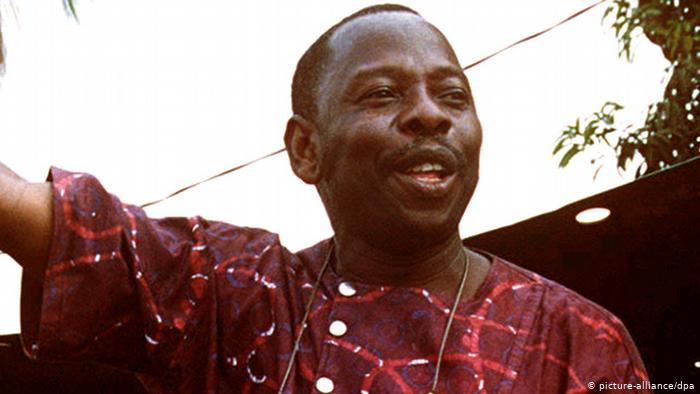
Photo credit: Picture-alliance dpa
Ken Saro-Wiwa was a Nigerian writer and an environmental activist who spoke out against the Nigerian military regime and the Anglo-Dutch petroleum company Shell for causing environmental damage to the land of the Ogoni people in his native Rivers State. He was one of the earliest members of the Movement for the Survival of the Ogoni People (MOSOP), which advocated for the rights of the Ogoni people and led nonviolent campaigns against environmental degradation of the land and waters of Ogoniland by the operations of the multinational petroleum industry.
In 1992, Ken who is known to be a critic of the Nigerian government was imprisoned for several months, without trial, by the Nigerian military government but was later released. In January 1993, he organized peaceful marches of around 300,000 Ogoni people – more than half of the Ogoni population – through four Ogoni urban centers, drawing international attention to their people’s plight.
He was arrested again in 1993 and executed on Nov. 15, 1995, along with eight other members of MOSOP, after the military government framed them for the murder of four Ogoni elders during a political rally.
2. Fela Anikulapo-Kuti
Fela Anikulapo-Kuti, known as Nigeria’s most famous musician and the pioneer of Afrobeat, was a blunt supporter of human rights, as many of his songs are direct attacks against dictatorships, specifically the military governments of Nigeria in the 1970s and 1980s.
Fela was highly engaged in political activism in Africa from the 1970s until his death. He criticized the corruption of Nigerian government officials and the mistreatment of Nigerian citizens. He spoke of colonialism as the root of the socio-economic and political problems that plagued the African people. His protest songs covered themes inspired by the realities of corruption and socio-economic inequality in Africa.
Fela was arrested on over 200 different occasions and spent time in jail, including his longest stint of 20 months after his arrest in 1984. On top of jail time, the corrupt government sent soldiers to beat Kuti, his family, and friends, and destroy wherever he lived and whatever he had. He died from complications related to AIDS On the 3rd of August 1997.
3. Gani Fawehinmi
Gani Fawehinmi was an activist, social critic, and human and civil rights lawyer who often represent those who couldn’t afford his services. He was known as “the people’s lawyer,” taking on a great number of pro bono cases over the course of his career.
Fawehinmi played the role of human rights campaigner for 40 years, constantly provoking the military rulers and defending their victims. Due to his constant face-off with the government, he was detained and beaten up time after time and was deported from one part of the country to another to prevent him from being able to effectively reach out to the masses among whom he was popular. His passport was confiscated several times, and on one occasion his books were seized and his library set on fire.
He believed in media freedom, contributed avidly to newspapers, and often took on journalists’ cases. Most notable of these was the still-unsolved case of Dele Giwa, a magazine editor killed by a parcel bomb in 1986. He died in 2009 after a long battle with cancer.
4. Funmilayo Ransome-Kuti
Funmilayo Ransome-Kuti was an educator and a women’s rights activist who established the Abeokuta Women’s Union and fought for women’s rights, demanding better representation of women in local governing bodies and an end to unfair taxes on market women.
She led marches and protests of up to 10,000 women, forcing the ruling Alake to temporarily abdicate in 1949, she took part in the Nigerian independence movement, attending conferences and joining overseas delegations to discuss proposed national constitutions. Spearheading the creation of the Nigerian Women’s Union and the Federation of Nigerian Women’s Societies, she advocated for Nigerian women’s right to vote and became a noted member of international peace and women’s rights movements.
She also co-founded the Nigeria Union of Teachers (NUT) with her husband Reverend Israel Oludotun Ransome-Kuti in July 1931 — and she was in the company of people like Nelson Mandela and Pablo Picasso as the winner of the Lenin Peace Prize, which was awarded to her in 1970.
She died from coma complications in 1978 after soldiers threw her from the second floor of her son Fela Anikulapo-Kuti’s home during a 1977 raid.
5. Aisha Yesufu
Aisha Yesufu is a political and women activist and businesswoman. She co-founded the #BringBackOurGirls movement after Boko Haram abducted over 200 girls from a secondary school in Chibok in 2014. bringing the world’s attention to that incident.
She was actively involved in the End SARS protest against police brutality in Nigeria. A picture of her wearing hijab at an End SARS protest became an iconic symbol of the movement. she was was among BBC’s 100 Women in 2020 and the Top 100 Most Influential Africans by New African magazine in 2020.
6. Chinua Achebe
Chinua Achebe was a writer and a social critic who is regarded as the most dominant figure in modern African literature. He constantly advocated for fairness and equality in Nigerian society through literature.
During the Nigeria civil war, he openly supported the secessionist Biafra movement and even took a position as head of the Biafra Broadcasting Service at great risk to his life and career. After the civil war, he continued to pull discourse toward Nigeria’s corrupt polity, notably in his book The Trouble with Nigeria.
Achebe died after a short illness in March 2013 in Boston, United States.
7. Wole Soyinka
Wole Soyinka is a Nigerian playwright, novelist, and political activist. He was awarded the 1986 Nobel Prize in Literature, one of the first African to be honored in that category.
He took an active role in Nigeria’s political history and its campaign for independence from British colonial rule. In 1965, he seized the Western Nigeria Broadcasting Service studio and broadcast a demand for the cancellation of the Western Nigeria Regional Elections. In 1967, during the Nigerian Civil War, he was arrested by the federal government of General Yakubu Gowon and put in solitary confinement for two years
In 1994, he fled the country after the dictatorship in power charged him with treason for criticizing the military junta. Soyinka continued to criticize the undemocratic governments and call out the oppression of Nigerians. Since the return to civilian rule in 1999, Soyinka has continued to activate political discourse around the needs of the average Nigerian and the corruption of the polity.
8. Chimamanda Ngozi Adichie
Chimamanda Ngozi Adichie is a Nigerian writer and Feminist who is one of the most prominent African authors in recent times. Adichie has been able to bring global attention to the inequalities women face in Nigerian and global society through her literary work such as Dear Ijeawele, or A Feminist Manifesto in Fifteen Suggestions.
Her famous Ted Talk, “We should all be Feminists” was adapted into a book. In 2015, the book was distributed to every 16-year-old high-school student in Sweden and has remained on bestseller lists all over the world.
Through Half Of A Yellow Sun, her second and most famous novel, about the Biafran war, Adichie was able to reveal and discuss the marginalization of the Igbo People before and after the Biafra war.

